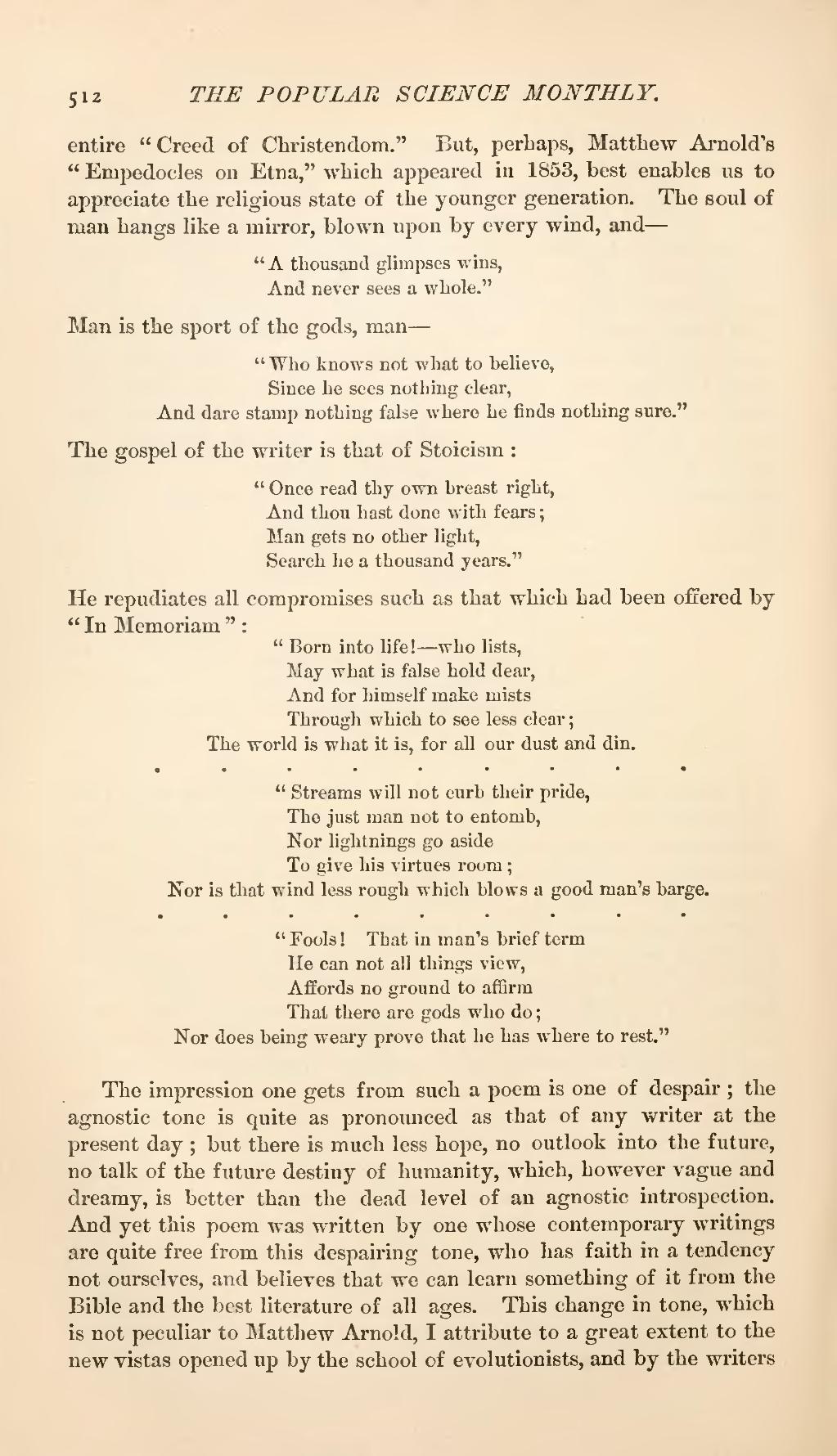entire "Creed of Christendom." But, perhaps, Matthew Arnold's "Empedocles on Etna," which appeared in 1853, best enables us to appreciate the religious state of the younger generation. The soul of man hangs like a mirror, blown upon by every wind, and—
"A thousand glimpses wins,
And never sees a whole."
Man is the sport of the gods, man—
"Who knows not what to believe,
Since he sees nothing clear,
The gospel of the writer is that of Stoicism:
"Once read thy own breast right,
And thou hast done with fears;
Man gets no other light,
Search he a thousand years."
He repudiates all compromises such as that which had been offered by "In Memoriam":
"Born into life!—who lists,
May what is false hold dear,
And for himself make mists
Through which to see less clear;
*********
"Streams will not curb their pride,
The just man not to entomb,
Nor lightnings go aside
To give his virtues room;
*********
"Fools! That in man's brief term
He can not all things view,
Affords no ground to affirm
That there are gods who do;
The impression one gets from such a poem is one of despair; the agnostic tone is quite as pronounced as that of any writer at the present day; but there is much less hope, no outlook into the future, no talk of the future destiny of humanity, which, however vague and dreamy, is better than the dead level of an agnostic introspection. And yet this poem was written by one whose contemporary writings are quite free from this despairing tone, who has faith in a tendency not ourselves, and believes that we can learn something of it from the Bible and the best literature of all ages. This change in tone, which is not peculiar to Matthew Arnold, I attribute to a great extent to the new vistas opened up by the school of evolutionists, and by the writers

